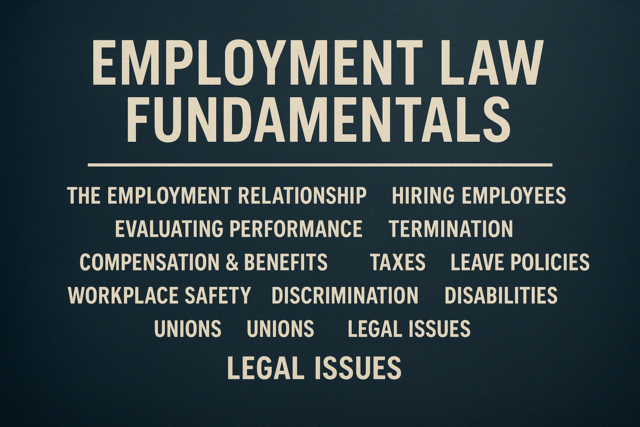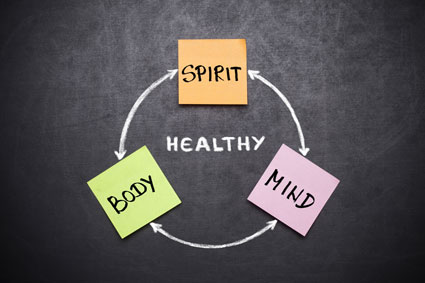More of our communication is done by telephone every day. Home phones, office phones, and cell phones are our virtual ties to each other as we rush from place to place. There is an etiquette for how we should answer the phone, how to speak properly on the phone, and, yes, how to decide when we should ignore the phone when it rings. It can be done, despite what many teenagers think.
Home Phones
Answering the phone seems simple, but most of us have been stunned into silence when someone has answered the phone by shouting, "Hello?" or, "What?" in such an irritated voice that we did not know what to say next. If you are truly so irritated that you do not want to be bothered, it is better not to answer at all. That is why the answering machine was invented. It is far better etiquette to let your answering machine pick up and return the call when you are in a better frame of mind than to snap at a caller because he or she has interrupted your shower, dinner, or nap.
Our obsession with answering the phone at all costs borders on the unhealthy. What did we do before cell phones, call forwarding, and all of the other conveniences that made phone calls readily available everywhere? Most calls could wait, and they still can.
Taking Calls
Always answer the phone warmly and with enthusiasm. If at all possible, answer your home phone by the fourth ring. If you are going to be doing something outside or in a room with no extension, take a cordless handset with you. Although it is popular these days, do not answer the phone with a joke or by saying something such as, "Speak to me!" You do not know who is calling and it is abrupt and disconcerting. Simply say, "Hello!" and wait for the caller's reply.
If the call is not for you, ask the person politely to wait while you get the person asked for. Set the phone down while you go get the person. This does not mean covering the receiver and shouting for the other person at the top of your lungs. The person on the other end will still hear you, and it is always rude to shout at someone unless you are on a playing field.
When you are talking to someone on the phone, give that person your undivided attention. The person on the other end can tell if you are really paying attention. The inflection of your voice, your responses, and even how often you respond all tell the caller a lot about how much you are focusing on him or her.
� Turn down any background noise, such as televisions and stereos.
� Do not eat or drink while you are on the phone. It sounds terrible on the other end, as though you are chewing and slurping right in the caller's ear.
� Be honest at the beginning of a call if you cannot stay on the phone long. It is much more polite to say, "Joan, it's so good to hear from you! How are you? Listen, I can give you about 10 minutes, but then I have to fly because I have a dentist's appointment. So let's chat, and then can we talk more tomorrow?" than it is to suddenly cut your friend off in the middle of a serious conversation.
� As with any conversation, make sure you listen as much as you talk, if not more. The same applies whether you are receiving a call or making one. A good conversationalist always shows interest in the other person and what that person has to say.
Taking Messages at Home
Otherwise, ask, "Tom, could you give me your last name and phone number? I just want to make sure my brother has it. He probably does, but I'd hate for you to miss his return call." After you have gotten this information, you might want to ask, "Will he know what this is about?" If he says yes, just say, "Great! I'll make sure he gets the message!" One way to make it easier for everyone in your house to take messages is to make sure there is a pen and paper next to every phone.
If you are leaving a message, always make it easy on the person on the other end of the line. Give your full name, phone number, and a brief message. Talk slowly and ask if the person has everything before hanging up. "This is Rick Wagner calling for Eva. I'm calling about Thursday's Little League meeting. She can reach me at 555-8797. Thanks so much!"
Keep in mind when calling friends and family that their schedules may not be the same as yours. If they work swing shift or have young children with early bedtimes, you should inquire about when it is convenient to call them. If you do not know when you call, be sure to ask, "Is this a good time for you?"
When you are on the phone with others, be aware of how long you have kept the other person tied up in conversation. Some people have difficulty knowing how to end a phone conversation gracefully. Do not allow yourself to trap someone on the line just because you have a free hour or two to chat. That person may have a dozen chores she or he needs to get to, so be aware of the time and get to your point quickly. If you are just calling to "catch up," keep it short and make plans to get together later for a more detailed chat or arrange a scheduled time for a detailed phone session.
If you dial a wrong number, be sure to apologize before you hang up. Do not ever slam the receiver down because you are embarrassed or the person answering sounds angry. Just because someone else has forgotten his or her manners is no reason for you to forget yours. Be honest and brief: "I'm so sorry, I must have a wrong number. Excuse me." Then hang up and check your number before dialing again. If you get the same person, do not dial the number you have again. It is obviously incorrect and you do not want to continue annoying the innocent person on the other end.
Just a few quick tips for these will suffice so that they are used properly without being annoying to anyone on the receiving end of your outgoing message and so that you leave messages that people will appreciate:
� Your children may be cute and adorable, but your answering machine is not the place to display their charm. Messages recorded by young children are difficult to understand and usually ramble on far too long.
� Jokes, music, and emotional pleas to save the spotted owl, etc., are also inappropriate on your answering machine. Someone may be calling with bad news, an urgent message, or simply may be having a terrible day. Your attempts at humor or your political views will at the least fall flat and at the most will be offensive.
� Keep it short and sweet. All that is needed are your names and a brief explanation, such as "We can't come to the phone right now," followed by a request for callers to leave a message, name, and phone number.
� When you reach an answering machine, talk clearly and distinctly. There is nothing as frustrating as an urgent message ending in a phone number mumbled so fast no one can decipher it. You should always repeat your name and phone number for clarity's sake.
� Remember to indicate when you called, including the day and time, and get to the point of your message quickly.
� Do not forget to say, "Good-bye." Lots of people leave this off on answering machines for some reason, as though because it is a machine, politeness is not required. A person is still going to get the message, so do sign off as though you were talking to the actual person.
Cell phones are everywhere, and many of us cannot imagine our lives without them. Technology like cellular phones means a new set of etiquette rules have to catch up as people begin to use these new technologies. If we all kept in mind the "consideration for others" rule, we would not need guidelines for cell phone use, but it seems that we do need rules for proper cell phone use. Increasingly, people are using them anywhere and everywhere without a thought as to whether they are imposing on those around them.
Keep in mind that cell phones are a convenience, not a necessity. They are meant to make our lives easier, not become the central entertainment or form of communication in our lives.
� Do not download annoying or overly loud ring tones that are likely to antagonize the average person. This is certainly subjective, but you can use common sense to decide what is appropriate. Cell phone ring tones have been heard that contain swear words, hardly appropriate for young children's ears. Realistic gunfire sounds are truly frightening for some people. Is there anyone who would think offending parents or scaring someone half to death is polite? Really?
� It should be obvious that cell phones are turned off in theaters, but now many people put them on vibrate, then answer them when they go off. Answering a silent ring is extremely rude. Think about it; you are carrying on a conversation during a movie. If your phone vibrates, quietly excuse yourself if you absolutely have to answer it and do not take the call until you are in the lobby. If you miss the call, you can call the person back.
� Limit answering any cell phone call when you are with others. It makes your friends and colleagues feel that they are "second rate" when you keep taking cell phone calls. The people you are with should always take precedence over a cell phone call, unless it is an extremely urgent call. You may quickly check the caller ID to see who it is and, if it is important, ask, "Do you mind if I take this call? It's important." Then excuse yourself to take the call privately.
� Do not talk on your cell phone in a restaurant. It is rude, annoying, and inappropriate, yet it is one of the most common etiquette mistakes made today. If you receive an urgent call, excuse yourself from the table and go outside or to a private area of the building. Never talk on the cell phone while seated at the table, which leads us to another issue: Do not put your cell phone on the table! It is not sanitary or polite. You can hear your phone just fine from your purse, belt, or pocket; and putting it on the table gives the impression to your guests that you are waiting and hoping for something more interesting than their company.
� The earpieces for today's cell phones, such as Bluetooth, are a great convenience, but do not leave them on your ear when you are not actually talking on the phone. It is confusing to those around you if they cannot tell whether you are talking to them or to someone on the phone. It also looks a bit ridiculous and pretentious, as though you are so important you have to have a phone receiver to your ear at all times waiting for that call from the president. And, of course, in a restaurant or at a social event you should never have your phone's earpiece on.
The Office
Most offices have strict rules for cell phone etiquette that are determined by management. They will usually be outlined in the employee manual or some other guide that details how everyone should answer the phone and take messages. Although you will need to defer to your particular company's rules, some general tips to keep in mind are:
� Give your name, department, and the company name clearly and slowly so that people understand, then give them time to respond.
� Do not answer with your extension number; it is impersonal and cold.
� Always be respectful to whoever answers the phone and do not insist on going over their heads immediately. In most cases, a secretary or assistant handles scheduling and has the information you will need or can get it for you.
� Before you put someone on hold, make sure this is okay with the caller and apologize for the inconvenience; for example, say, "I'm sorry, I'll need to check on that for you. Do you mind if I put you on hold for a moment?" This will make callers much more at ease with being put on hold temporarily.
� If you need to put someone on hold, check back every 15 to 20 seconds to let her or him know you have not forgotten about the call and provide an update on how soon the person can expect to be put through. If it is going to be a lengthier wait than anticipated, offer to take a message and have the call returned.
� When you need to talk to a superior, make the call yourself rather than asking a secretary or assistant to place the call for you. A superior should never answer and then be expected to wait for you to be patched through.
� Check messages as often as you can and try to return calls the same day whenever you can. If you can set aside time after lunch and before leaving at the end of the day to return calls, they will not stack up and clients will appreciate your thoughtfulness.






























